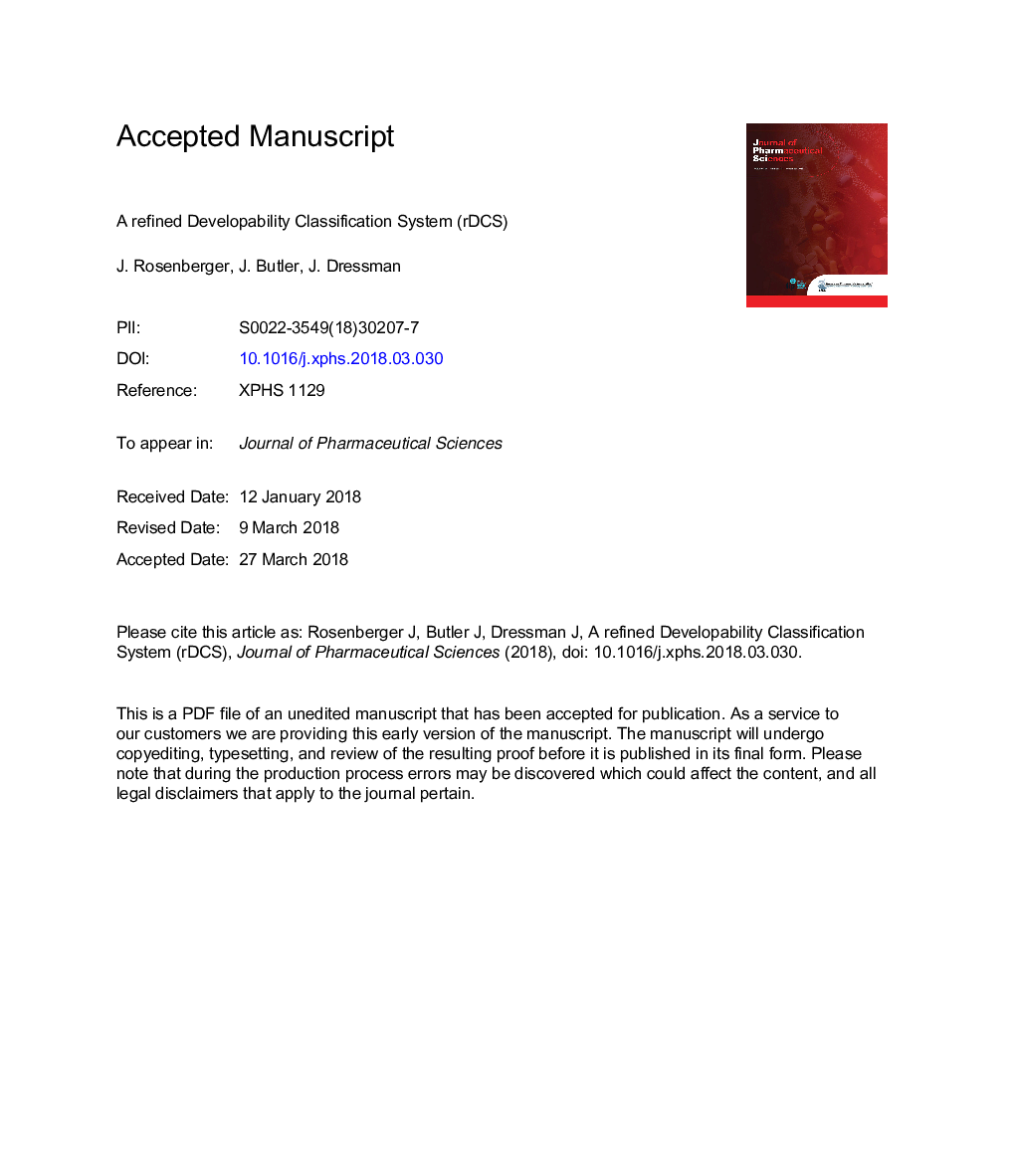| Article ID | Journal | Published Year | Pages | File Type |
|---|---|---|---|---|
| 8513082 | Journal of Pharmaceutical Sciences | 2018 | 43 Pages |
Abstract
In 2010, the Developability Classification System (DCS) was proposed. The DCS was designed to close the gap between the biopharmaceutics classification system, which is aimed at guiding regulatory decisions about well-characterized drugs, and the need for early evaluation of drug candidates with respect to their suitability for oral delivery. The DCS applied solubility in fasted state simulated intestinal fluid to estimate intestinal solubility, assessed the compensatory nature of permeability and solubility during oral absorption and provided a way of estimating the critical the particle size at which dissolution becomes rate-limiting to absorption. Building on this framework, a refined developability classification system (rDCS) is now proposed. The rDCS is stratified into standard investigations applied to all candidates, and customized investigations. Standard investigation of solubility and permeability can be performed according to in-house methods, and the results compared with standard data sets of fasted state human intestinal fluid solubility and human effective jejunal permeability, which have been generated specifically for rDCS. Customized investigations are triggered when there is potential for supersaturation/precipitation (weak bases; salts of weak acids) and to assess dissolution versus permeation limited absorption. In addition, the rDCS offers facile visualization of the results, enabling pragmatic comparison of drug candidates and formulation approaches.
Keywords
Related Topics
Health Sciences
Pharmacology, Toxicology and Pharmaceutical Science
Drug Discovery
Authors
Julian Rosenberger, James Butler, Jennifer Dressman,
